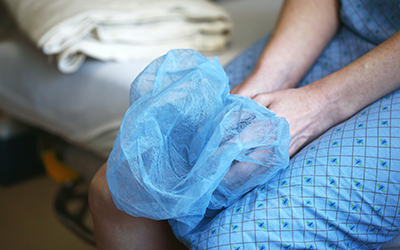How Does Prehab Physical Therapy Help?
While physical rehabilitation post-surgery seems to be standard operating procedure, did you know pre-operative rehabilitation is just as important? In fact, implementing a rehabilitative program prior to surgery can actually cut down on recovery time, complications, and even healthcare costs!
The Game Plan: What to Expect
Following surgical procedures, patients often experience a decline in strength and function, as well as increased inflammation, pain, and swelling. Over a clinically suggested 6-week time frame prior to surgery, a physical therapist will assess the patient for muscle and joint strength, ability to move and perform day-to-day tasks, and degree of independence—all of which are crucial in creating the patient’s individualized pre-surgical rehabilitation plan. From there, the goals of this plan are simple:
- Mentally prepare the patient for surgery
- Reduce pain and inflammation
- Restore range of motion
- Improve muscular control of the affected area
- Normalize movement patterns prior to surgery
- Improve overall well-being and fitness
- Gain a good understanding of the exercises to perform immediately after surgery
The Results: Prehab Leads to Improved Post-Surgical Results
By addressing key muscles, joints, and tissue anticipated to be affected by the procedure ahead of time, physical therapists are able to enhance post-operative outcomes. According to the American Physical Therapy Association (APTA), participating in just 1-2 pre-operative rehabilitative sessions can reduce postoperative care by 29%, which translates into healthcare savings of more than $1,000 per individual.
*Study based on patients with total knee or hip replacement
Sources:



